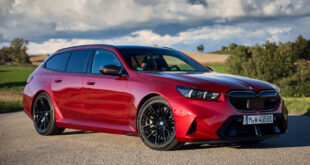BMW continues to highlight the next-generation M2’s rear-wheel-drive system. But should BMW introduce an all-wheel-drive BMW M2?

The new-gen BMW M2 will only have a rear-wheel-drive system. With the rising popularity of the all-wheel-drive, BMW might succumb to customers’ demands. It wouldn’t be a surprise if BMW introduces an AWD for the BMW M2.
However, BMW has never made a small M car into an all-wheel drive. Both the M2 and 1er M only had rear-drive-only models. Thus, there is no precedent for the AWD M2, if ever. This means we should look at the pros and cons of having an M2 xDrive.

Let’s start with its advantages. BMW M2 will be a handful with its 400 hp In a rear-wheel-drive chassis. Giving it xDrive would significantly enhance its straight-line performance.
Also, all-weather stability is the main advantage of all-wheel drive. A car is less likely to slip during poor weather with more driving wheels. This makes a car safer in more circumstances, compared to a rear-wheel drive.
The downsides of all-wheel-drive vehicles include the tendency to understeer. Ironically, a lack of front-end grip is one of the primary causes. A car will understeer around curves if the front tires lose grip. And the M3 and M4 don’t seem to understeer at all. Therefore, it’s best to keep it this way with the M2.

The reduced weight of rear-wheel drive is one of the primary factors for choosing it. All-wheel drive increases the car’s weight and complexity. As a result, it becomes less enjoyable to drive. Sure, AWD improves grip and performance but weight destroys the fun of driving sports cars. Also, the M2 is already quite heavy for a small car.
Another con is that overloading your tires can have an impact on steering and precision. That’s not ideal for a vehicle like the M2.
Weighing the pros and cons, should BMW introduce an AWD M2?
 BMW.SG | BMW Singapore Owners Community The Ultimate BMW Community – Established Since 2001
BMW.SG | BMW Singapore Owners Community The Ultimate BMW Community – Established Since 2001













